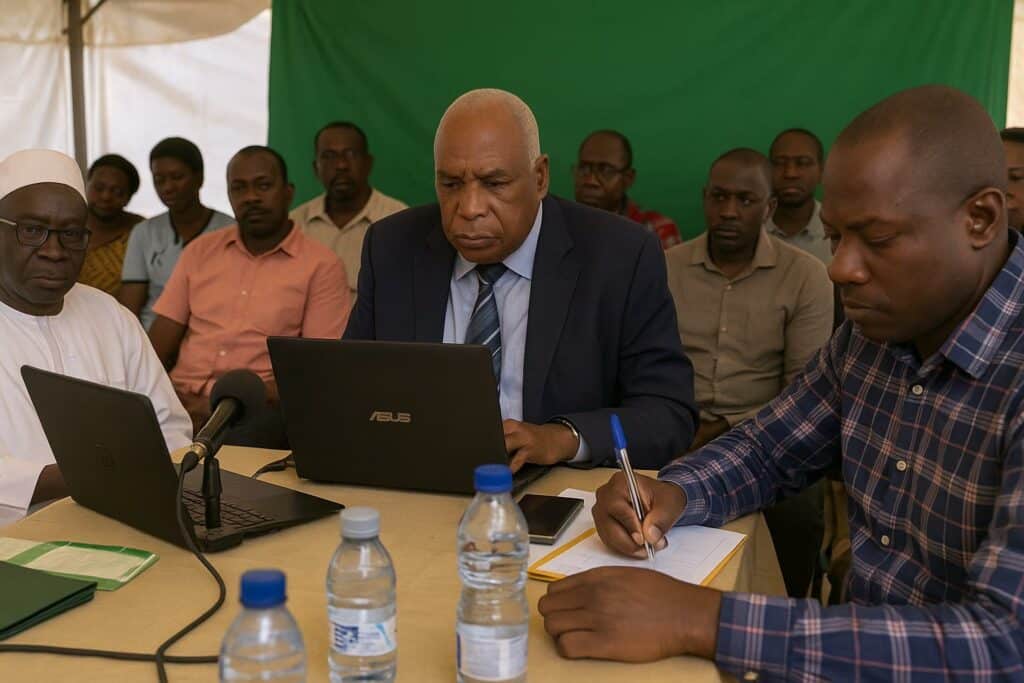A Call Resounding in Brazzaville
The afternoon heat of 14 September had scarcely begun to abate when delegates of the Rassemblement des Forces du Changement gathered for the final session of their founding assembly in the capital. From the podium, President Clément Mierassa let no rhetorical flourish obscure the gravity of his message: the nation, he said, stands at a crossroads. Without rancour but with unmistakable urgency, he invited his peers to embrace “the work that will usher in a profound mutation” of political practice in Congo-Brazzaville.
From Diagnosis to Actionable Programme
Mierassa’s speech offered more than an alarm bell; it traced a route from diagnosis to prescription. Acknowledging what he termed a “deep crisis” affecting institutions and social cohesion, he argued that mere contemplation of ideals will not suffice. The leadership must translate conviction into popular mobilisation, he insisted, and transform a visionary impulse into a structured societal project. By appealing to collective responsibility, the RFC’s head underscored that renewal is not the prerogative of any single individual but a shared civic contract.
Institutional Architecture Adopted
The assembly, which had stretched over several days, culminated in a series of procedural milestones that confer legal and organisational substance on the movement. Delegates adopted foundational texts, endorsed a Declaration of Political Orientation, installed an Executive Bureau and validated structural resolutions. These decisions, taken in plenary session, signal the transition of the RFC from a loose coalition of sympathies to an entity capable of disciplined action within the republic’s legal framework.
Patriotic Ethos and Civic Energy
Throughout the proceedings, Mierassa paused repeatedly to salute what he described as the discipline, patriotism and constructive spirit displayed by participants. That posture allowed him to anchor the RFC’s ambitions in values that resonate widely: justice, freedom, integrity and national unity. “The Congolese people are watching us; they are waiting for us,” he reminded the hall, prompting an ovation that blended solemnity with quiet resolve. In his view, the assembly’s orderly conduct itself demonstrated that the country still harbours citizens determined to consolidate peace and development through lawful, peaceful means.
À retenir
Beyond the symbolism, the primary outcome of the gathering lies in its operational roadmap: translating a hopeful narrative into grassroots engagement; positioning the RFC as a credible interlocutor among existing parties; and maintaining an unwavering commitment to constitutional principles. Delegates left Brazzaville with the understanding that public trust will be earned only if future statements are matched by measurable community impact.
Le point juridique/éco
By adopting internal statutes and a declaration of orientation, the RFC satisfies key requirements of Congo-Brazzaville’s 2001 Law on Political Parties, notably provisions governing transparency, democratic functioning and national cohesion. Economically, the movement has placed responsible public finance and equitable growth at the heart of its draft programme, signalling a pragmatic appreciation of budgetary constraints while advocating for social inclusion. Such positioning may allow the RFC to participate usefully in forthcoming policy dialogues without disrupting macro-economic stability.
An Invitation to Shared Stewardship
In closing, Mierassa issued what he called a “solemn appeal” to all citizens—urban and rural, young and seasoned—to join a peaceful yet determined campaign for a reconciled, upright and prosperous Congo. The phrasing deliberately avoided confrontation: the objective, he stressed, is not rupture for its own sake but a constructive contribution to the republic’s ongoing narrative. If the enthusiasm witnessed in Brazzaville can be channelled into sustained civic projects, the RFC may well embody the inclusive, forward-looking energy that modern Congolese society appears to desire.

